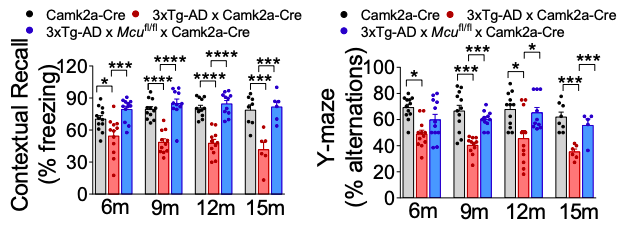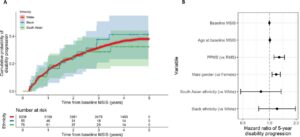
“Genetic ablation of neuronal mitochondrial calcium uptake halts Alzheimer’s disease progression.”
Pooja Jadiya, et al. – Temple University.
Background: Mitochondrial calcium overload has been linked to critical aspects of AD such as amyloid-β production, but whether this overload is a cause or effect of those aspects has been unclear.
This Study: By knocking out the mitochondrial calcium uniporter (Mcu) from forebrain neurons, Jadiya and colleagues were able to prevent memory deficits in a mouse model of AD, as well as reduce production of amyloid plaques, tau tangles, free radicals, and peroxidized lipids. The authors suggest that this overload may be a response to increased neuronal activity and stress – both known to occur in AD – that is initially beneficial, enabling increased oxidative phosphorylation and energy production, but becomes pathogenic when sustained over long periods of time.
Bottom Line: Calcium overload appears to contribute to key aspects of AD pathology, suggesting that reducing mitochondrial calcium represents an important new target for treating AD.




